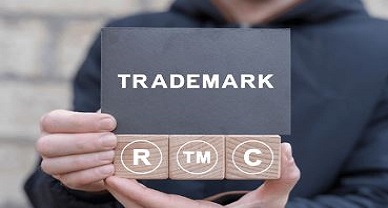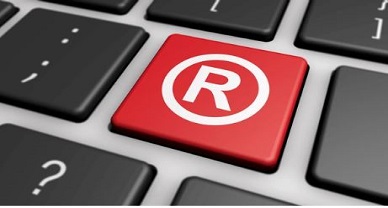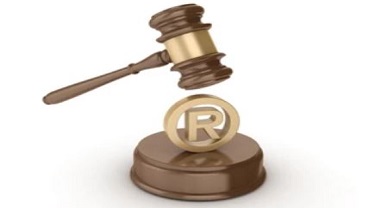Ratan Tata’s Trademark Victory: A Deep Dive into the Legal Battle Over His Name and Image
On a significant ruling, the Delhi High Court has conferred trademark ability for the name and photograph of Ratan Tata. This ruling stresses the intensifying importance given to intellectual property rights in the same context in public figures whose names, appearances, and images are valued so much that their reputation may justify their use. It was a fight for Ratan Tata involving the brand Tata, which also became a precedent for individuals regarding how personal branding and legacy misuse can be protected.
The Case That Sparked the Legal Battle
It arose from the event organized by Dr. Rajat Srivastava, founder of Delhi Today Group, called the “Ratan Tata National Icon Award 2024.” This glamorous award ceremony was to recognize distinguished personalities from diverse walks of life, and the event was marketed in a fashion suggesting that Ratan Tata was himself actively associated with the event. In fact, Srivastava used the name and face of Ratan Tata extensively for promotional purposes to attract potential participants and garner funding.
The central issue was, however, that Tata had no involvement in the event at all, nor did Tata Trusts, who were wrongly linked with the event by the free use of the name of Tata. Srivastava also charged a “nomination fee” from participants, indicating that going by that implicit endorsement was assumed when in fact it was far from being so. After learning about the unauthorized use of his name, Ratan Tata took legal measures to protect his intellectual property rights and prevent any such future damage to his name and fame.
Court’s Observations and Findings
Justice Mini Pushkarna pronounced, “The name of Ratan Tata should not be treated as an identity mark of a person, but a ‘well-known trademark,’ carrying the same protection as for registered trademarks.” The argument by which the case sought to protect Ratan Tata’s name and reputation was viewed rather harshly by this judge. It is important in the sense that, under Indian law, “well-known trademark” provisions show wider rights against unauthorized persons misusing a brand under the Trade Marks Act, 1999: associated with well-known marks. The court further stated that the name Tata is very closely connected to the goodwill and esteem enjoyed by the Tata Group, the oldest and once most renowned business houses in India, referring to the further evidence in the petition.

Tata imparts with the identity and coupled into the professed business ethos by the Tata Group to create a brand synonymous with trust, integrity, and philanthropy. Misleading the public into damage against a carefully crafted image of Tata would be such an unauthorized use by a third party as here. Good example of the personal branding evolution in India-a public figure asked for the same protection as been available to the largest corporations against illegitimate claims on personal legacy. Recognition of Tata’s name as a “well-known mark” simply meant that any commercial exploitation of this name without his consent would be illegal.
Important Provisions of Law in this Case
The judgment of the Delhi High Court concerns some clauses of the Trade Marks Act, 1999 giving recognition to the name Ratan Tata as a well-known mark, thereby stating that his name cannot be used commercially without his permission. A couple of the most important clauses of the Act swayed the verdict, which are as under:
- Section 2(1)(zb) definition of ‘Well-Known Mark’- Section 2(1)(zb) of the Trade Marks Act essentially defines what a “well-known trademark” would be. This section states that a mark is said to be “well-known” when it is traced out of all others in the minds of the public in the concerned country for some great reputation, long usage, etc., associated with a quality of goods or services. The Court held in this case that the name of Ratan Tata and the Tata brand are well-known marks; thus, under the Act, Tata’s name would enjoy protection, as any unauthorized usage would lead to confusion or damage to the public’s perception of that individual or the company.
- Section 29-An infringement of Trade Mark right or a violation under Section 29 of Trade Mark relates to infringement of registered trademarks or unlawful use of a mark that is similar or identical to another mark as already registered. The case has had the jury apply this provision by commenting that Dr. Srivastava’s use of Ratan Tata’s name was actually misleading. This gives rise to the imaginary connection between Ratan Tata and the event, whereas in fact there is no such connection. The act amounted to the direct infringement of Tata’s trademark rights as well as His having bad faith practices by Srivastava under the use of Tata’s name without his permission.
- The Authority of Section 30(1) Use Limitations-Mere Permissions by Trade Mark Section 30(1) provides that there are limited uses which specific conditions should be fulfilled: for instance, fair between the parts of truth wherein there was no confusion, but does not allow such usage for advertising purposes that confuse public. So the court finds that Srivastava’s using Ratan Tata’s name was not “honest” and “non-commercial” because it created a false impression to the public and sought to create revenue through it on the underlying reputation of Tata. This provision thus further fortified the judgment of unauthorised use.
- Offenses and Penalties Section 135 of the Act. This is where the penalties for the unauthorized use of a trademark are described, leading to either civil or criminal consequences. It is within this context that the court refrained from imposing any criminal penalties on Srivastava, and instead, granted a permanent injunction on the defendant, barring him from using Tata’s name or similar trademark in future dealings. This injunction serves both as legal remedy and preventive measure for Ratan Tata’s brand.
- Ownership Claim Denied Due to Use of a Mark 27 Section 2. According to the provision, using a famous trademark does not confer any rights to the user to claim title on the mark. Therefore, Dr. Srivastava’s use of Tata’s name did not entitle him to any ownership or legal right on that count. The court reiterated that it constituted unauthorized commercial exploitation of the name Ratan Tata without his permission, infringing the intellectual property rights of Tata.
- Passing Off Apart from trademark infringement, “passing off” torts were also dealt with by the court. It describes when a business pretends that its goods or services relate to another business that has achieved some sort of acceptance or notoriety. It constituted an abuse of Ratan Tata’s name and likeness in passing off that event as having been approved by Tata himself, when in fact, the public would see that it was independent of him. Such misrepresentation might have caused reputational harms to Tata and the Tata group.
The Legal Implications and Impact of the Ruling
The decision has legal and commercial implications. The ruling constitutes a reminder both to individuals and the corporate world concerning the necessity of legal protection for personal brands. Nowadays, social media and digital marketing cause unauthorized usage of the names and likenesses of public figures quite frequently. The judgment reinforces the need for intellectual property protection-Ratan Tata v. Union of India-in the present and future respect for reputation against the exploitation of these for commercial endeavours.
Therefore, informed consent assumes greater gravity when the names or images of public figures are used for commercial purposes. In other words, any unauthorized use of a personal brand as an intellectual property asset will often serve as a focal point for serious litigation. Corporations and individuals are now better aware of the legal risk that the exploitation of famous persons for commercial purposes without prior consent entails.
The Court’s Decision: Permanent Injunction and Future Protections
It has developed into an order of the court’s awarding permanent injunction restraining Dr. Rajat Srivastava and/or his institution from using Mr. Ratan Tata’s name, likeness, or anything affiliated to that in the future in whatsoever manner. Further injunction is passed against Dr. Rajat Srivastava from doing any advertisements and public relations for events using any representations that deceive the public as if such event has some approval from Mr. Tata. This judgment has sent out a very strong message in the ground for infringement regarding well-known trademarks or personal brands, which are indeed intolerable.
This was in response to the recent verdict pronounced by the Court, in which it Dr. Srivastava fully recognized the seriousness of the legal situation and hence accepted his obligation to abide by the orders of the court, so as to pre-empt any damage that could flow from thereon in terms of financial loss or reputational damage. The case provides an excellent precedent on how the personal brand could be preserved under intellectual property law as are corporate trademarks.
Broader Context: Protection of Public Figures’ Likeness
It typifies the larger trend in intellectual property law that now extends to the likenesses of public figures as what is perceived by law as valuable assets of individuals. Personal branding in this age has become extremely powerful, and this now brings in the need for protection of one’s identity as much as trademark protection is required by companies. Such a judgment in the Ratan Tata case is a step further in recognizing that personal identity and public image have intrinsic commercial value requiring protection under the law.
Conclusion: A Landmark Decision
Possibly, the Ratan Tata trademark action is “landmark” not only in the area of intellectual property law but also in personal branding. The judgment secures the lifetime legacy of Ratan Tata and also sends an even stronger message about the evolving consideration of the protection of one’s personal identity as a valuable trademark. An age, however, where all these will be used in the name of digital marketing and notoriety case precedents of public figures-with this, future treatment of such illegal matters will find themselves well established.
Author:–Daisy Banakhede, in case of any queries please contact/write back to us at support@ipandlegalfilings.com or IP & Legal Filing.
References-
https://images.assettype.com/barandbench-hindi/2025-02-10/np1l6tcf/Ratan_Tata_Vs_Delhi_today.pdf
https://timesofindia.indiatimes.com/india/ratan-tata-known-figure-must-protect-his-trademark-delhi-high-court/articleshow/118127134.cms
https://m.economictimes.com/news/india/deserved-protection-of-his-name-delhi-hc-bars-unauthorised-use-of-tata-name-trademark-ratan-tatas-image/articleshow/118025045.cms
https://www.livelaw.in/high-court/delhi-high-court/delhi-high-court-ratan-tata-name-rights-trademark-protection-283397



